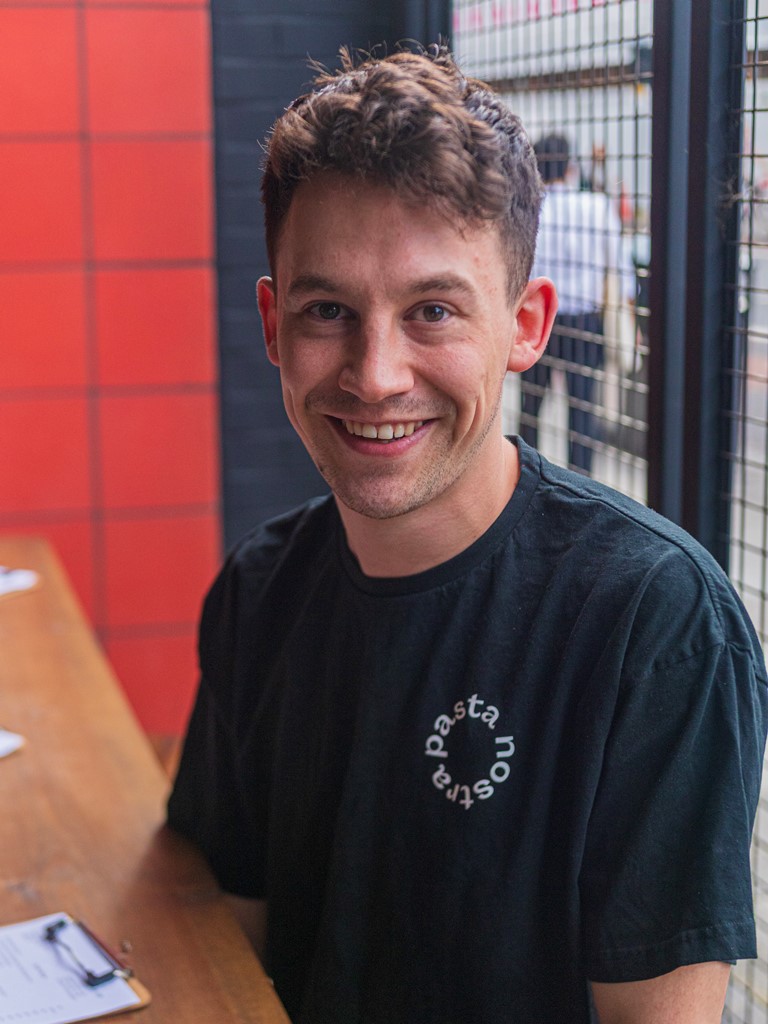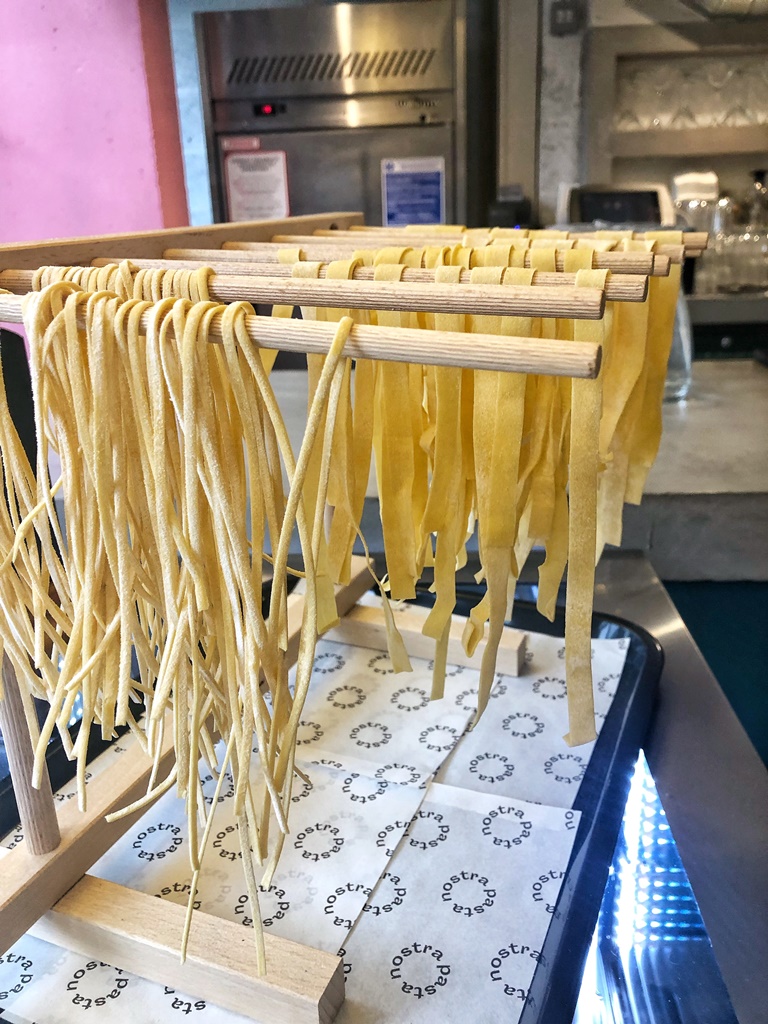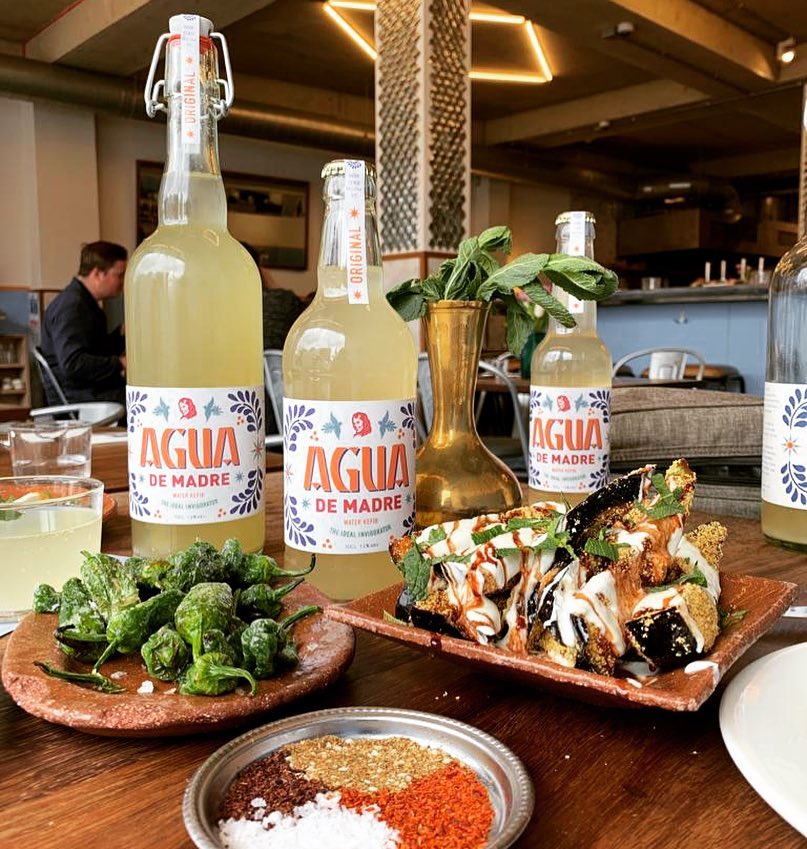G: What did inspire you to be a chef and what does it take to become a good one?
W: When I was 14 I had an opportunity to work in a gastropub, The Horse and Groom, it was getting a better and better reputation each year to the point that when I joined they had a Michelin bib and had won countless awards. I had eaten there a few times and I was desperate to know what was going on behind the scenes – why was this the best food I had, had? What are they doing in the kitchen? Was it how they depicted on TV? I suppose the inspiration behind making that move into finding a way to work there was pure curiosity, what does it take to make food like this? Can I do it too?
 To be a good chef I would say there are a handful of solid principles that need to be practised. Resilience is key, this industry doesn’t leave any prisoners. It’s hard and gruelling, at points, to work the long hours and less glamorous jobs. But for me the key is to use every experience, good or bad, and learn from it. Being able to adapt and create under pressure is essential and if you have a bank of experience to call on it gets less gruelling and far more rewarding. If I were starting all over again I would try and create a CV with lots of different restaurants and styles, Staging is a great way to do this a young chef – leave your comfort zone!
To be a good chef I would say there are a handful of solid principles that need to be practised. Resilience is key, this industry doesn’t leave any prisoners. It’s hard and gruelling, at points, to work the long hours and less glamorous jobs. But for me the key is to use every experience, good or bad, and learn from it. Being able to adapt and create under pressure is essential and if you have a bank of experience to call on it gets less gruelling and far more rewarding. If I were starting all over again I would try and create a CV with lots of different restaurants and styles, Staging is a great way to do this a young chef – leave your comfort zone!
G: What was your first job as chef?
W: Speaking of the less glamorous jobs… my first actual job, I can remember it exactly to this day, was chiffonading, what felt like, a tone of spring greens. In no way skilled or exciting but to me it was perfect. I was, for the first time, in a professional kitchen as a ‘chef’, with my own knife and my own whites working as part of a brigade.
G: What is unique about your cooking style?
W: What I really like to think defines ‘my style’ is a very, very simple premise. Find the best raw ingredients I can, that absolutely does not necessarily mean expensive, or luxury, and make them sing. Although the premise is simple the reality is quite the reverse, it involves spending an awfully longtime mastering techniques and understanding how this premise is achieved – practice and experience. It is quintessentially what Pasta Nostra is about, skipping the bullduggery of fads and trends and concentrating on 2-3 key components on a dish and making them the best they can be.
G: How do you select the menu for the Pasta Nostra?
W: Usually very late at night, with Luca and a beer! But in terms of the dishes themselves, we look at what is in season, what is coming up and what is at the height of flavor at that moment. Currently our menu is humming of all things summers: chilli, tomato, melons, aubergines all perfect right now. We also think about what is coming up and will start to get in touch with suppliers. We try and change the menu a couple of times a month.

G: What would you say has been your most memorable experience while working at Pasta Nostra?
W: For me that’s a very easy question, although the whole journey to date has been an absolute rollercoaster with some seriously difficult moments but also some incredible moments. I would have to say that the feeling of that first customer coming into your own restaurant on the first day of trading is both thrilling, nerve wrecking and surreal at the same time, knowing that they are stepping into a space that is so personal to me will never get tiring.
G: What is your signature dish that everyone has to try?
For me, Oxtail Ragu. It’s the product of mine and Luca’s style and best showcases the philosophy of maximizing flavor from every component in the dish. It involves so few key ingredients: tomato, oxtail, parmesan. But getting it from those few ingredients to the dish that is served in front of you is a different story. It will always be my favourite.
Social links:
Instagram: https://www.instagram.com/pastanostralondon/
Facebook: https://www.facebook.com/PastaNostraLondon/
Website: http://pastanostralondon.com







